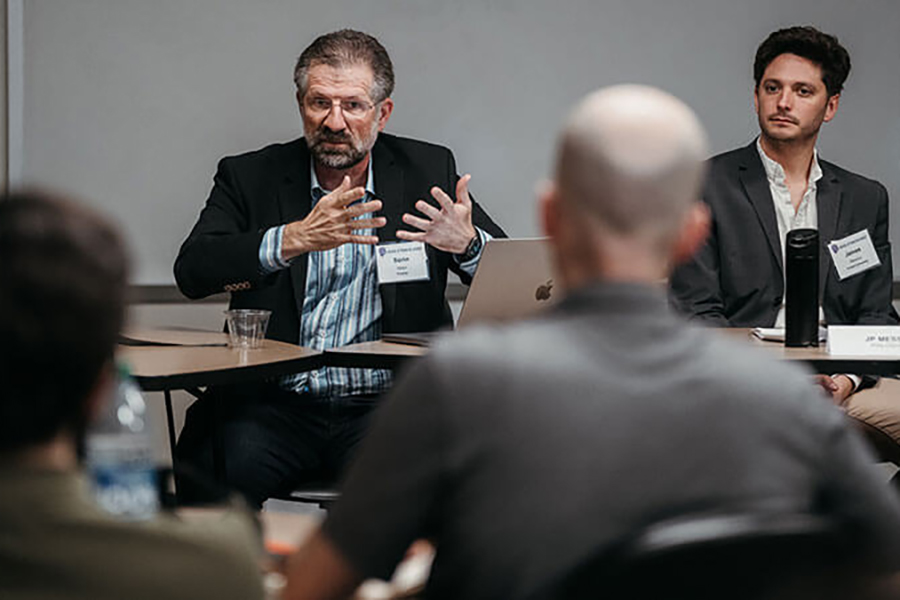Purdue ethics conference tackles big-picture AI challenges

As high-tech enterprises race to release the latest iterations of artificial intelligence, a parallel sprint is on to address evolving questions about the worldwide consequences of all novel technology and AI, a largely mysterious technology that’s constantly changing.
In welcoming attendees to the recent IEEE (Institute of Electrical and Electronics Engineers) ETHICS-2023 at Purdue, Leah Jamieson, the Ransburg Distinguished Professor of Electrical and Computer Engineering and John A. Edwardson Dean Emerita of Engineering, said the conference “represents the confluence of technological advances and the well-being of humanity.” She added: “It is impossible to overstate how important dialogue about ethics is in this world.”
The three-day mid-May conference brought together 180 people at the tops of their fields in government, academe and the private sector to explore the theme, “ethics in the global innovation helix,” with particular attention to defining and confronting the big questions surfacing around AI. Among them: how to establish ethical and legal governance for AI; what AI means for the future of work; AI’s potential effects on diversity and equity; and the need to adapt education to AI ubiquity.
Local conference organizer Brent Jesiek, Purdue professor of engineering education and electrical and computer engineering, said the strength of the event was in its diversity: “I think that bringing together a multisector interdisciplinary perspective on these emerging issues is really the only way we’re going to address them. We have people from STEM fields, social sciences and humanities. The power is in bringing them together.”
Stefanie Tompkins, director of the Defense Advanced Research Projects Agency (DARPA), attended the conference. She said such events are critical to national preparedness.
“It’s incredibly important for any science and technology organization to wrestle with the hard questions and look critically at potential impacts of technology development,” Tompkins said. “Conversations with the broader community of ethicists help us see more clearly around corners and over the horizon so we can collectively be better at anticipating potential consequences — the ethical, legal and societal implications of emerging technologies.”
Jesiek said the question of how AI will affect how people work was a key topic, with discussions helping to define key questions.
“We asked to what extent AI is transforming the very nature of work, and creating and destroying jobs and job roles and industries,” he said. “We talked about how ethics intersects with justice, equity, diversity and inclusion concerns, responsible innovation and ethical design. We asked what responsible innovation and ethical design in the software and machine-learning space is, what is sustainable development, and even more practically — how do we teach these things?”
Asked whether worldwide regulators will be able to keep up with the technology, Jesiek was cautiously optimistic.
“History suggests that we have more often than not taken a reactive approach to revolutionary technologies. And my guess is that that is what’s happening now,” he said. “But I was struck at the conference by the amount of work that’s being done globally on this issue. For example, UNESCO (the United Nations Educational, Scientific and Cultural Organization) has an ethics of artificial intelligence initiative and the first-ever global standard on AI ethics.”
Jesiek added that the Purdue conference will help to shape future thought and concerted work. “One of the things that tends to come out of these events is new connections, collaborations and projects that bring together people in new ways. That’s big.”
Source: Purdue ethics conference tackles big-picture AI challenges
